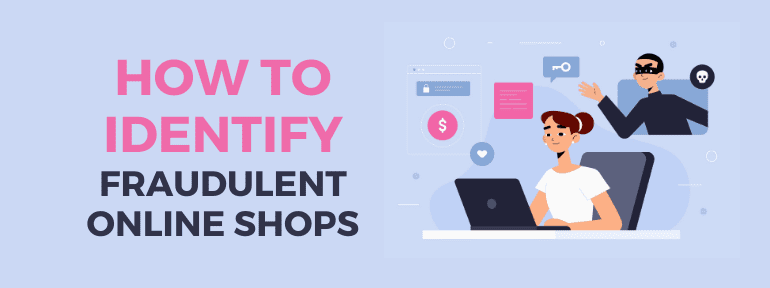HOW TO IDENTIFY FRAUDULENT ONLINE SHOPS
Some time ago, we published a post that aimed to help merchants avoid fraud in their online store (Here you have it) But, as you know, we also care about the buyer’s point of view and about giving you tips on how to buy correctly online (As a sample, this post) So this time, we wanted to turn the tables and show you the obvious signs that an online shop or e-commerce is a fraud.
The ever cunning cybercriminals are not indifferent to consumer trends and, just as they have rushed to develop all kinds of malware for smartphones, they’re taking advantage of the rise of online commerce by creating fake stores designed to scam shoppers.
TYPES OF FAKE STORES
There are generally three types of fake stores:
The most popular are those that are designed solely to rip off the buyer. Famous products are offered that will never reach their destination. The seller will keep the money for the purchase without sending the order and then after a while, disappear without a trace. Or worse, they troll you and send you some bullshit, to make fun of you (recently, an acquaintance who bought a synthesizer online “super cheap”, got a box with a brick and the message“haha loser!“).
In the second type, the goal is to get the buyer’s credit card details. Once the purchase is completed, the user accesses a payment gateway to enter the card details and the secret number, and all of it will be registered to be used by the scammers. This is probably the most dangerous type of fake online shop, as you’re not only robbed once, but you can be robbed massively.
Finally, there are others that sell plain and simple counterfeit products and also of poor quality. In this case, the buyer will receive a few days later some products that are nothing like the ones he was expecting and without any possibility of claiming.
HOW TO DETECT A FAKE SHOP
Check the URL
To do this you can use an online url scanner, which analyzes and detects if the site where you want to buy is actually a malicious or fraudulent website. VirusTotal and URLVoid are two of the most reliable scanners you can use.
Check out the prices
If you suddenly come across prices that are too low, like 50 or 60% or even more, you should always be suspicious. These online stores may offer low prices to sell fake or non-existent items quickly, before they’re detected as fraudulent by software or security tools.
Check the footer and look for company details
A legitimate online store will always display its name in the footer, along with the year it was created and the current year. It will also include links to “About” pages, warranty and replacement policies, privacy policies, terms and conditions, sitemap, contact, FAQ, etc.
Shop domain creation date
If the online store displays a copyright that indicates that it was created in 2005, but when you check the domain creation date using the Whois tool, you find that it was actually created in 2016, it is clear that it is something strange and possibly fraudulent.
Check your social networks and online reviews
Nowadays, online stores have a very significant presence on social media and user review platforms. This means that there is usually interaction between the brand and the followers, and it is usually a good indication of whether the company really exists and if there are people behind it. You can tell if it’s a trustworthy online store by looking at the number of followers and particularly the comments and reviews regarding their products or services.
Have you come across a fake online shop that has scammed you and you don’t know what to do? Retrieve all the documentation and emails you have exchanged with that company and report them to the police. It’s unlikely that they’ll be able to recover your money, especially if they’re abroad and outside the EU, but maybe you will get something. But, above all, never stop commenting and reporting it online on all platforms, social networks and blacklists of online shops, as well as consumer and user associations.
Others will find out and will know where you stand.
Do you need help? Ask us whatever you need.
Related Posts










Deja un comentario